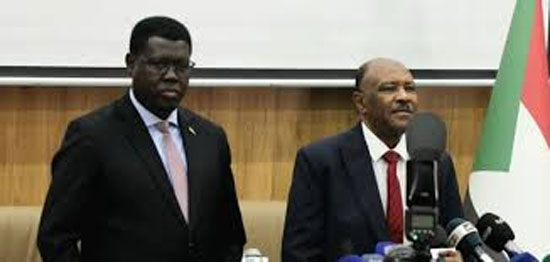Daijiworld Media Network - Khartoum
Khartoum, Oct 6: Sudan and South Sudan have reached a significant agreement to jointly protect vital oil infrastructure, including oil fields and central pipeline stations that transport South Sudan’s crude to Port Sudan. The deal, announced in a joint statement on Monday, comes as both nations seek to deepen cooperation in energy, security, and economic development.
The two sides committed to enhancing technical capacity and oil production while ensuring the safety of key facilities along the export route. This move is particularly crucial for South Sudan, whose economy is heavily reliant on oil exports, and for Sudan, which earns transit fees for transporting the oil to international markets.

Alongside energy collaboration, the agreement also covers security cooperation. Both countries pledged to intensify joint efforts in counterterrorism, intelligence sharing, and securing their shared border.
To further economic integration, Sudan and South Sudan announced plans to form a joint economic committee focused on expanding partnerships across sectors such as trade, investment, agriculture, transportation, and infrastructure. A major proposal includes the establishment of a free trade zone at Port Sudan, designed to boost cross-border commerce, streamline transit goods to South Sudan, and support the oil supply chain.
The agreements were made during South Sudanese Foreign Minister Monday Semaya Kumba’s visit to Sudan from Saturday to Monday. During his stay in Port Sudan, Kumba held high-level discussions with Sudan’s Transitional Sovereign Council Chairman Abdel Fattah Al-Burhan and other senior leaders.
This renewed cooperation unfolds against the backdrop of ongoing crises in both nations. Sudan continues to be mired in a brutal civil conflict between the army and the paramilitary Rapid Support Forces, which has killed tens of thousands and triggered mass displacement since April 2023. Meanwhile, South Sudan is grappling with widespread flooding, which the UN says has killed 19 people and affected over 639,000 across multiple states.
Despite these challenges, the agreements signal a shared intent to stabilize key sectors and foster long-term economic and security cooperation between the two neighbouring countries.